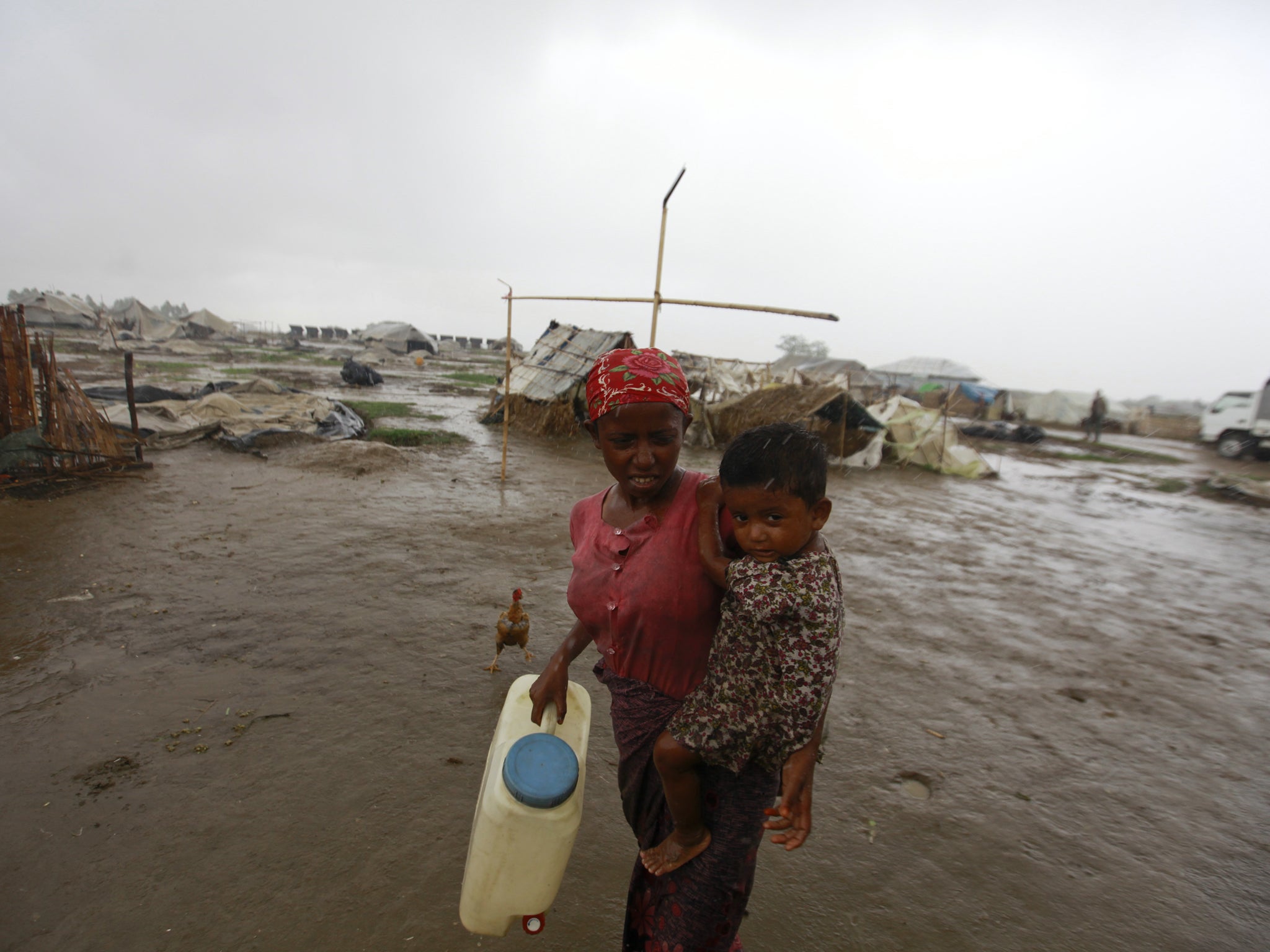Millions escape brunt of Cyclone Mahasan
45 left dead but tropical storm misses 100,000-strong refugee camp in Burma by some distance

Your support helps us to tell the story
From reproductive rights to climate change to Big Tech, The Independent is on the ground when the story is developing. Whether it's investigating the financials of Elon Musk's pro-Trump PAC or producing our latest documentary, 'The A Word', which shines a light on the American women fighting for reproductive rights, we know how important it is to parse out the facts from the messaging.
At such a critical moment in US history, we need reporters on the ground. Your donation allows us to keep sending journalists to speak to both sides of the story.
The Independent is trusted by Americans across the entire political spectrum. And unlike many other quality news outlets, we choose not to lock Americans out of our reporting and analysis with paywalls. We believe quality journalism should be available to everyone, paid for by those who can afford it.
Your support makes all the difference.Millions of people across south and south-east Asia have been spared the horrors of a devastating cyclone after a storm working its away up the Bay of Bengal first weakened and then broke up when it struck land.
Although at least 45 people were reported to have been killed and more 1m were evacuated, it had been feared Cyclone Mahasan would be far deadlier as it made landfall and made its way inland in a north-easterly direction.
The storm came ashore in Bangladesh’s Patuakhali district on Thursday morning but then lost power as it shed huge amounts of rain. It then shifted to the west of its predicted path, avoiding the major population centres of Chittagong and the coastal resort of Cox’s Bazar.
Several hours after the storm had passed, Ahmed Ibrahim Orbil, who lives in the Dashmina neighbourhood of Patuakhali, said he still could not believe his luck that the town had escaped without much damage.
“It passed through this area around 10.30am. There was inclement weather including heavy rainfall since last night,” he said, speaking by phone.
Among those also breathing a sigh of relief were more than 100,000 refugees living in makeshift camps in the west of Burma. The refugees, almost all of them Rohingya Muslims, were forced to flee their homes after sectarian violence last year left almost 200 people dead.
The refugees have been living in camps on the banks of an estuary near to the town of Sittwe and despite orders by the authorities to evacuate, most had not bothered, so fearful are people of the government and the military.
As it was, Mahasan missed the camps by some distance. “It’s all over, and we are very relieved that we didn’t have any unfortunate incident in Rakhine state due to the cyclone,” Win Myaing, a spokesman for the regional government, told the Associated Press.
The region is no stranger to death and misery caused by cyclone. In 1991 a massive storm that swept up the Bay of Bengal slammed ashore killing around 140,000 people and leaving millions without homes. In 1970 Cyclone Bhola killed 500,000 people.
Meanwhile, in May 2008, upwards of 135,000 people perished when Cyclone Nargis swept into Burma’s Irrawaddy Delta. The then military government was widely condemned for doing nothing to help people or even to warn them of the impending storm’s arrival.
Mohammad Mokhlesur Rahman, an official with the National Disaster Response Coordination Centre, said that some of the lowly-populated ares that suffered the brunt of the storm, which was by then travelling at around 20mph, were the Sitakunda and Urir Char areas of Chittagong and parts of Barisal.
In Cox’s Bazar, tens of thousands of people had fled shanty homes along the coast and packed into cyclone shelters, hotels, schools and government office buildings. But by Thursday evening, the sun was shining.
Related heavy rains and flooding in Sri Lanka were blamed for eight deaths earlier this week. Meanwhile, at least eight people – and perhaps as many as 60 – were killed after more than 100 Rohingya Muslims took to sea in an attempt to reach higher ground. Two of five vessels capsized. More than 50 people remain unaccounted for.
Subscribe to Independent Premium to bookmark this article
Want to bookmark your favourite articles and stories to read or reference later? Start your Independent Premium subscription today.
Join our commenting forum
Join thought-provoking conversations, follow other Independent readers and see their replies
Comments